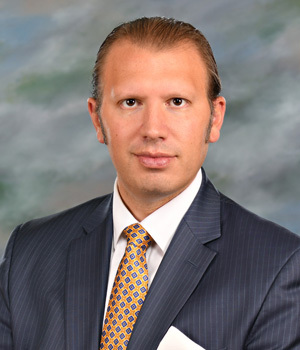Peter G. Passias, MD

Dr. Peter G. Passias completed an accelerated masters and medical doctorate program with a sub-focus on mechanical engineering, followed by residency at Tufts University, Boston. Following completion of his residency, he performed additional training at the Harvard Combined Fellowship with a focus on adult spinal deformity, primary osseous tumors of the spine, and traumatic injuries to the spine. He spent a year studying spinal realignment and kinematics at the Massachusetts Institute of Technology, where he received several NIH grants. This was followed by additional training in minimally invasive spine surgery and adult and paediatic spinal deformity at the Hospital for Special Surgery and Weill Cornell New York Presbyterian Hospitals. Dr. Passias has also performed an abbreviated international fellowship on the treatment of atlantoaxial and occipitocervical deformities at Peking University Hospital.
Dr. Passias practice is centered on the management of complex primary and revision adult and paediatric spinal deformities. He is considered a leader in the treatment of cervical spine deformities and has developed several techniques and treatment algorithms aimed at identifying optimal realignment procedures for specific clinical presentations. He is a pioneer in the adaption of robotic surgery for complex deformities. Research interests include outcomes of spinal surgery, cost utility, risk stratification, spinal realignment, and biomechanics. He has authored more than 400 peer-reviewed manuscripts and presented 1,000-plus presented abstracts at scientific meetings. Dr. Passias was elected to the Editorial Board of the Journal of Neurosurgery: Spine in 2021.

